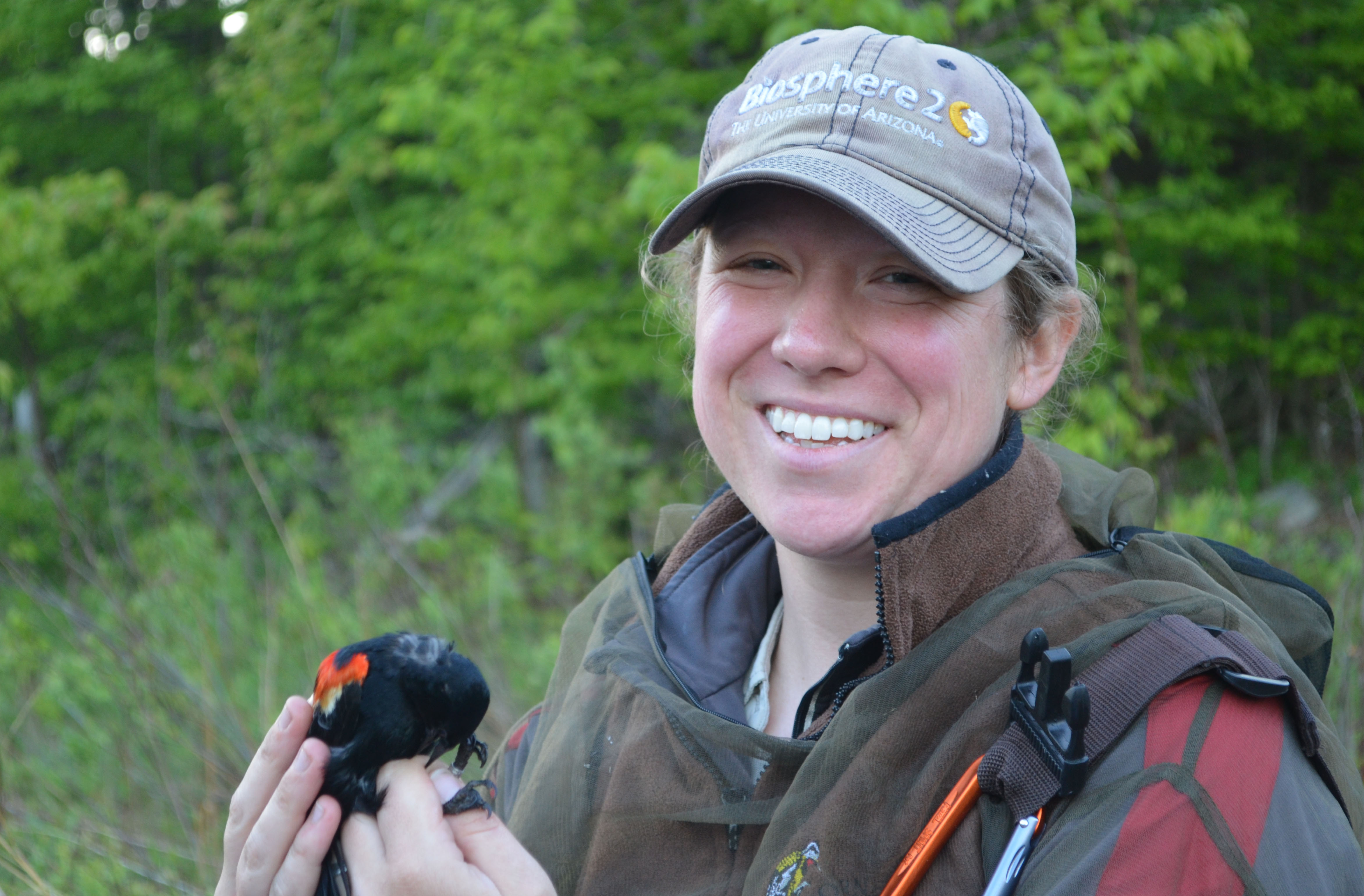Environmental Protection Agency recognizes doctoral student's research on birds

A Virginia Tech graduate student has received a U.S. Environmental Protection Agency’s Science to Achieve Results or STAR program fellowship for outstanding environmental research.
Laura Schoenle of Buffalo, New York, a Ph.D. student in biological sciences in the College of Science, received the award for studying stress hormones and disease in red-winged blackbirds.
Schoenle is also a fellow in the new Interfaces of Global Change interdisciplinary graduate education program funded by the Graduate School with support from the Fralin Life Science Institute.
Human-induced factors including climate change, habitat degradation, and pollution can affect the health of birds. Schoenle is interested in how mercury contamination affects the levels of a stress hormone called glucocorticoid in birds.
"High levels of this stress hormone tells you that a bird is under resource demand, and therefore might be more susceptible to disease," said Schoenle, who is also an Institute for Critical Technology and Applied Science Doctoral Scholar.
Mercury is deposited naturally in the environment through volcanic eruptions, vaporization in the oceans, and the weathering of soils and rock. However, the rise of mining and manufacturing industries dramatically increased mercury levels in the environment resulting in damage to ecosystems and human health.
Low levels of environmental mercury can have a profound effect on animal populations as it accumulates in both terrestrial and aquatic ecosystems.
Schoenle suspects a connection between mercury contamination and the intensity of avian malaria infections.
To measure this, she will capture malaria-infected birds and observe how diets with trace amounts of mercury affect the amount of parasites and stress hormones in the blood.
“Over 90 percent of red-winged blackbirds in our study population in Canada test positive for malaria,” Schoenle said. “Because the birds are ubiquitous and abundant — nowhere near endangered — they’re an excellent model for studying how stress and disease are connected in birds.”
Schoenle is co-advised by Ignacio Moore, an associate professor of biological sciences in the College of Science and Fralin Life Science Institute affiliate, and Fran Bonier, an affiliate faculty member of biological sciences in the College of Science at Virginia Tech and an assistant professor at Queen’s University. Both have long studied the connection between environmental stressors and health in wild animals, especially birds.
“Laura’s work is really novel in that she is investigating interactions between stress and disease,” Moore said. “Most people look at one or the other. And yet, wildlife are facing assaults from multiple factors and thus studies like Laura’s are truly important for understanding how they will respond to these threats. Her participation in the Interfaces of Global Change graduate program highlights the importance of understanding interactions between multiple threats.”
Schoenle will use fellowship resources, which includes a $25,000 stipend, to expand the study to look at how mercury and stress levels affect resistance and tolerance to avian malaria. Resistance is the birds’ ability to reduce the number of parasites in their body, and tolerance is reducing the effects of the infection relative to the number of parasites.
“These fellowships are helping our next generation of scientists and engineers earning advanced degrees in environmental sciences conduct cutting edge research,” said Lek Kadeli, acting assistant administrator for the Environmental Protection Agency’s Office of Research and Development. “Through this support, EPA is ensuring that the United States will have the scientific knowledge to meet future environmental challenges, which will strengthen our nation’s economy and security, while better protecting our health and environment in addition to combating climate change.”
Dedicated to its motto, Ut Prosim (That I May Serve), Virginia Tech takes a hands-on, engaging approach to education, preparing scholars to be leaders in their fields and communities. As the commonwealth’s most comprehensive university and its leading research institution, Virginia Tech offers 240 undergraduate and graduate degree programs to more than 31,000 students and manages a research portfolio of $513 million. The university fulfills its land-grant mission of transforming knowledge to practice through technological leadership and by fueling economic growth and job creation locally, regionally, and across Virginia.




